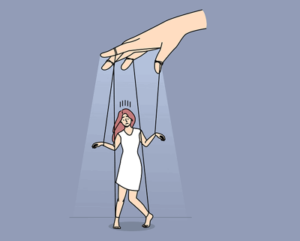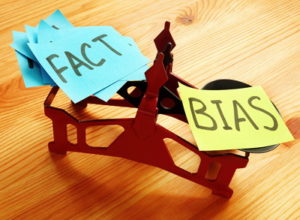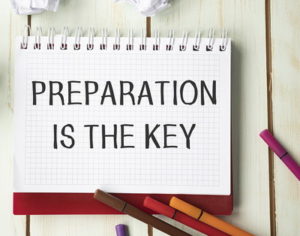 In the pursuit of understanding the complex fabric of the universe, we often defer to the experts, the Einsteins of our world, whose profound insights have illuminated the darkest corners of our knowledge.
In the pursuit of understanding the complex fabric of the universe, we often defer to the experts, the Einsteins of our world, whose profound insights have illuminated the darkest corners of our knowledge.
We trust them not only for their brilliance, but also for the sheer magnitude of intellectual effort it would take to traverse the same path. This inherent obedience to authority is a cognitive shortcut, a pragmatic means to navigate a world inundated with information. Yet, this deference to authority extends far beyond the realms of theoretical physics and academic discourse.
It permeates our daily lives, subtly influencing decisions we make that are both grand and mundane. Nowhere is this tendency more evident than in the world of gambling. Here, the stakes are high, both financially and emotionally, and the margin for error can be unforgiving.
Consider this peculiar phenomenon: ex-footballers, retired jockeys and assorted ‘experts’ who offer their insights, tips and their prognostications. Their words carry weight, their opinions held in reverence. Why is it that we so willingly relinquish our own judgment, trusting in their assertions, their calculations and their gut feelings when they are often idiots?
Knowing Who To Trust

In the intricate dance of risk and reward that is the world of betting, where fortunes rise and fall on the capricious whims of chance, the reliance on experts seems almost intuitive. After all, these individuals have traversed the arenas, weathered the storms and emerged with wisdom forged in the crucible of experience.
Their insights, we believe, hold the key to success. Yet, herein lies the paradox: blind obedience in the realm of gambling is a precarious path, a tightrope walk over the chasm of uncertainty. Many of these experts, it must be acknowledged, are no better than we are.
Although they have been involved in many of the sporting events that they discuss, they are not privy to some mystic algorithm, nor do they possess an infallible crystal ball. Their ‘tips’ are often grounded in intuition, inferences drawn from their own observations and experiences. It is a perilous foundation on which to stake one’s fortune.
Moreover, the very conduit through which this information is disseminated raises questions of reliability. Take, for instance, the example of a race track’s assessment of ground conditions and who, or what, it is that we choose to believe.
The penetrometer, a tool of science, quantifies the ground as ‘good.’ Yet a jockey, poised at the precipice of competition, counters this assertion, claiming the ground to be softer than measured. Which authority do we trust in this moment of divergence?
The heart of the matter lies in understanding the psychology of trust and the allure of expertise. It is a delicate interplay of confidence, reputation, and the human tendency to seek affirmation from those perceived to possess superior knowledge. In the context of gambling, this dynamic is amplified, as the desire for success, for that elusive win, can override the rational mind.
Understanding Cognitive Biases
 There are cognitive biases that underpin our obedience to authority, examining how they shape our decisions in the high-stakes world of gambling. Through the lens of psychology and probability, we try to untangle the threads of trust, exploring when it serves us well and when it leads us astray.
There are cognitive biases that underpin our obedience to authority, examining how they shape our decisions in the high-stakes world of gambling. Through the lens of psychology and probability, we try to untangle the threads of trust, exploring when it serves us well and when it leads us astray.
In doing so, we hope to shed light on the delicate dance between intuition and evidence, between the wisdom of experts and the power of independent thought. For in the realm of gambling, as in life, the balance between trust and critical thinking is the fulcrum upon which fortunes teeter.
In the pursuit of informed decision-making, it is imperative to discern when to lean on the wisdom of those who have trodden the path before us, and when to trust our own instincts. This discernment, however, is no easy feat. It requires a blend of scepticism and open-mindedness, an ability to weigh the merits of both expert opinion and personal analysis.
The allure of expertise is undeniably strong. It provides a sense of security, a reassuring anchor in the turbulent sea of uncertainty. When an ex-footballer or a seasoned jockey imparts their insights, it carries the weight of experience.
As amateurs, we have a deep-seated belief that those who have dedicated their lives to a craft possess an innate understanding that transcends the mere mortal. Yet, it is crucial to remember that expertise is not infallible. It is shaped by a myriad of factors, including personal biases, past successes and failures and the idiosyncrasies of individual experience.
This is particularly true in the capricious realm of gambling, where variables abound and outcomes are often determined by the whims of chance. The question then arises: how do we navigate this terrain of conflicting authorities and divergent opinions?
The answer lies in a nuanced approach that marries trust with critical thinking. It entails a willingness to seek out diverse perspectives, to question assumptions and to synthesise information from multiple sources. In the case of ground conditions at a race track, for example, a judicious gambler might consider both the penetrometer’s assessment and the jockey’s first hand experience.
They might factor in weather patterns, recent maintenance and the historical performance of horses under similar conditions. This holistic approach, grounded in a respect for both expert insight and empirical evidence, serves as a bulwark against blind obedience.
Not only that, it is also incumbent upon us to scrutinise the motives behind the dissemination of expert opinions. Are they driven by a genuine desire to share knowledge, or is there a vested interest at play? In the world of gambling, where fortunes are won and lost, the line between genuine expertise and self-serving promotion can blur.
Discerning between the two is a skill honed through experience, a guard against falling prey to slick marketing and persuasive rhetoric. Is Gary Neville saying what he’s saying because he really thinks it, or his Manchester United blinkers on?
The Paradox Of Trust
 Ultimately, the paradox of trust in gambling underscores a broader truth about the human condition: our capacity for both wisdom and folly, for discernment and gullibility. It serves as a reminder that the pursuit of knowledge is not a passive endeavour, but an active engagement with the complexities of the world.
Ultimately, the paradox of trust in gambling underscores a broader truth about the human condition: our capacity for both wisdom and folly, for discernment and gullibility. It serves as a reminder that the pursuit of knowledge is not a passive endeavour, but an active engagement with the complexities of the world.
As we navigate the labyrinth of probabilities, we need to do so with eyes wide open, with a willingness to learn from those who have come before us, but also with the courage to challenge, to question and to forge our own path when necessary.
In this delicate dance between obedience and independence, between authority and autonomy, lies the key to making informed, calculated decisions in the world of gambling and beyond. Yes, experts exist and are paid good money to offer their opinion because they will sometimes have something worthwhile to say, but they are also there simply to fill airtime.
We need to wonder which one it is they are active in when we hear what they have to say and weigh up their words alongside our knowledge. We shouldn’t simply defer to so-called ‘experts,’ but nor should we ignore them entirely.
